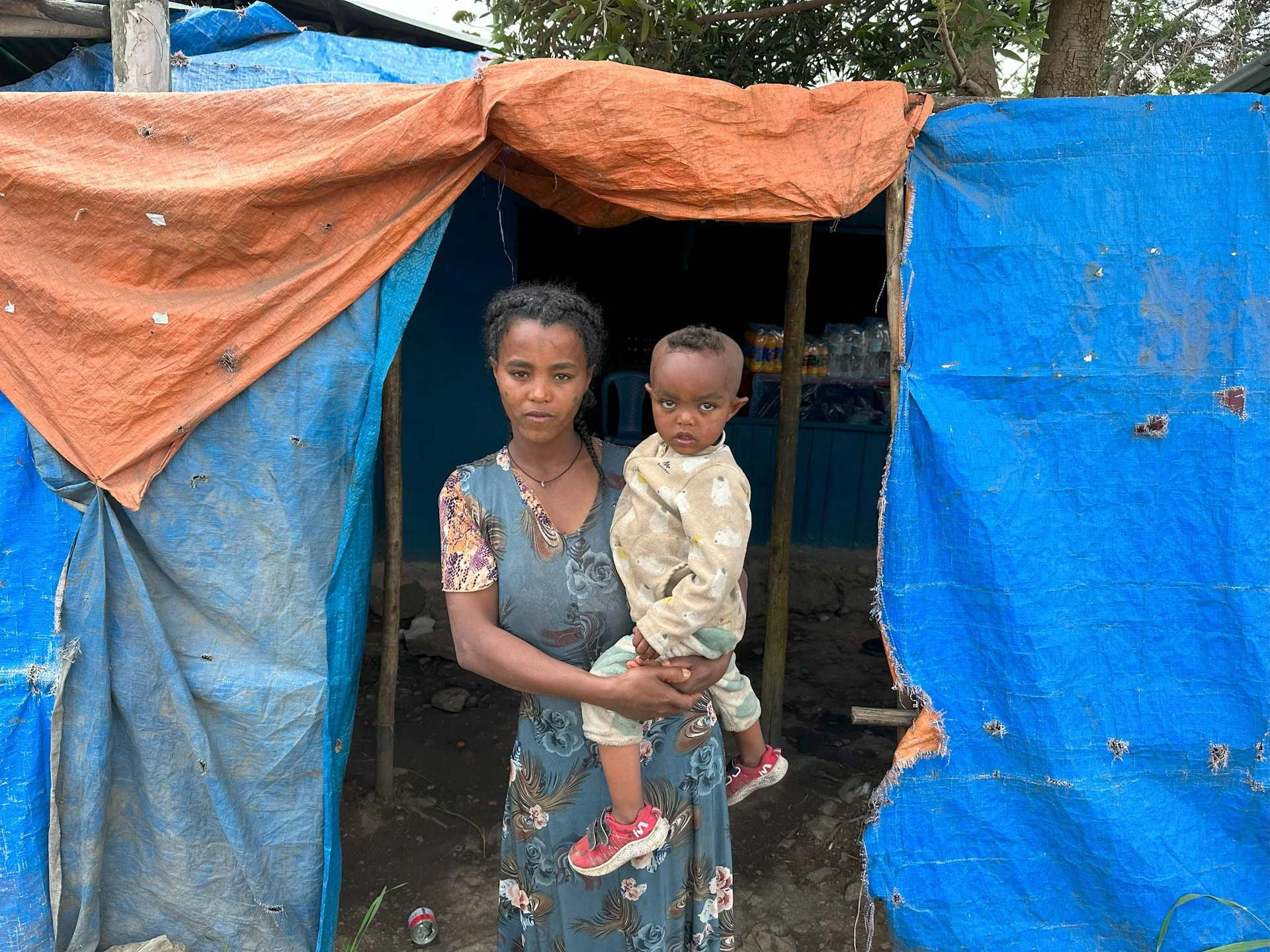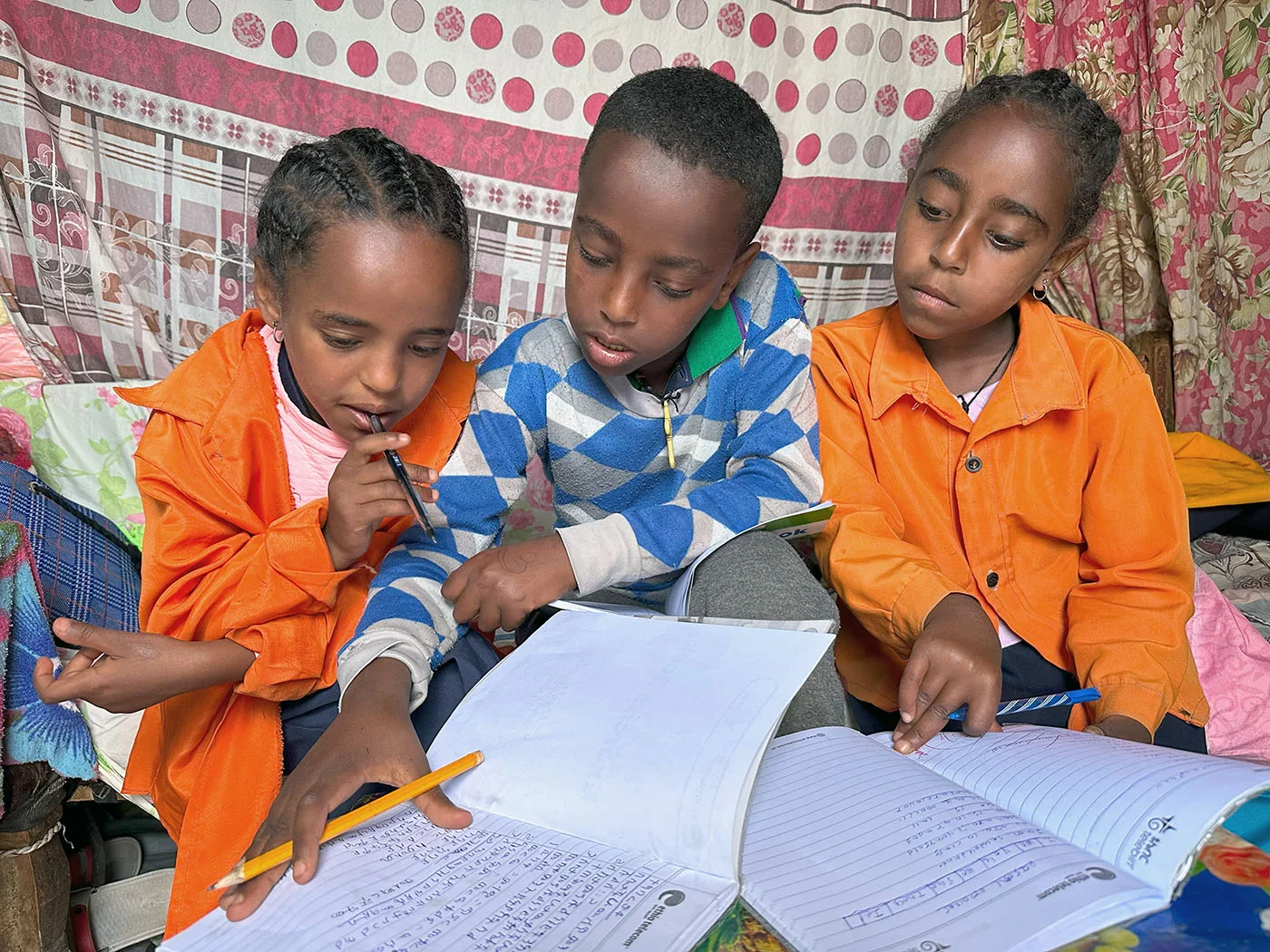Initial situation
This misery is extraordinary even for the conditions in one of the poorest countries in the world: entire families live in tiny shacks in the slums of Debre Berhan, often only separated from their neighbors by plastic sheets or an open latrine. This is not only a health hazard, but also degrading.
The families mostly have a similar story: They come from overpopulated villages where the fields are too small and too depleted to feed all the residents. But the newcomers' hope for a better life in the city is not fulfilled. Without training, they have to rely on poorly paid odd jobs as porters in the market or as unskilled laborers in construction. In a country without a functioning social system, children are forced to drop out of school in order to contribute to the family income - but without education their fate is sealed to remain in poverty for the rest of their lives. That's why it's so important to improve their general living situation and increase their chances of getting a school education.

Our help for self-development
Support for children - and parents
During its first visit, our inspection team saw that the people's situation was hopeless without outside help. The foundation therefore decided to develop a broad-based children's project: The families of 1,800 children will receive holistic support to alleviate their misery in the short term and give them opportunities for a decent life on their own in the long term.
One of the main focuses of the project is to enable children from poor families to attend school. The first step is to create the basic conditions for this: Some children do not attend school because they are too weak due to malnutrition. Or they fall ill because they do not know basic hygiene rules and have no access to clean drinking water. Improving nutrition, hygiene knowledge and the drinking water situation is therefore just as much a part of the measures as providing the children with school uniforms and materials.
We show people how they can develop their own long-term prospects. The mothers are organized into self-help groups and taught, for example, how they can start a small business with microloans. Adolescents and young adults also receive start-up support for self-employment.
Priority is given to children who have only one parent or who show signs of malnutrition. In our selection process, we relied on associations of local interest groups (including women, senior citizens, church representatives) and authorities. In this way, we achieved the greatest possible objectivity and, together with our social workers, can provide individual support to the children and their families who really need it most.
